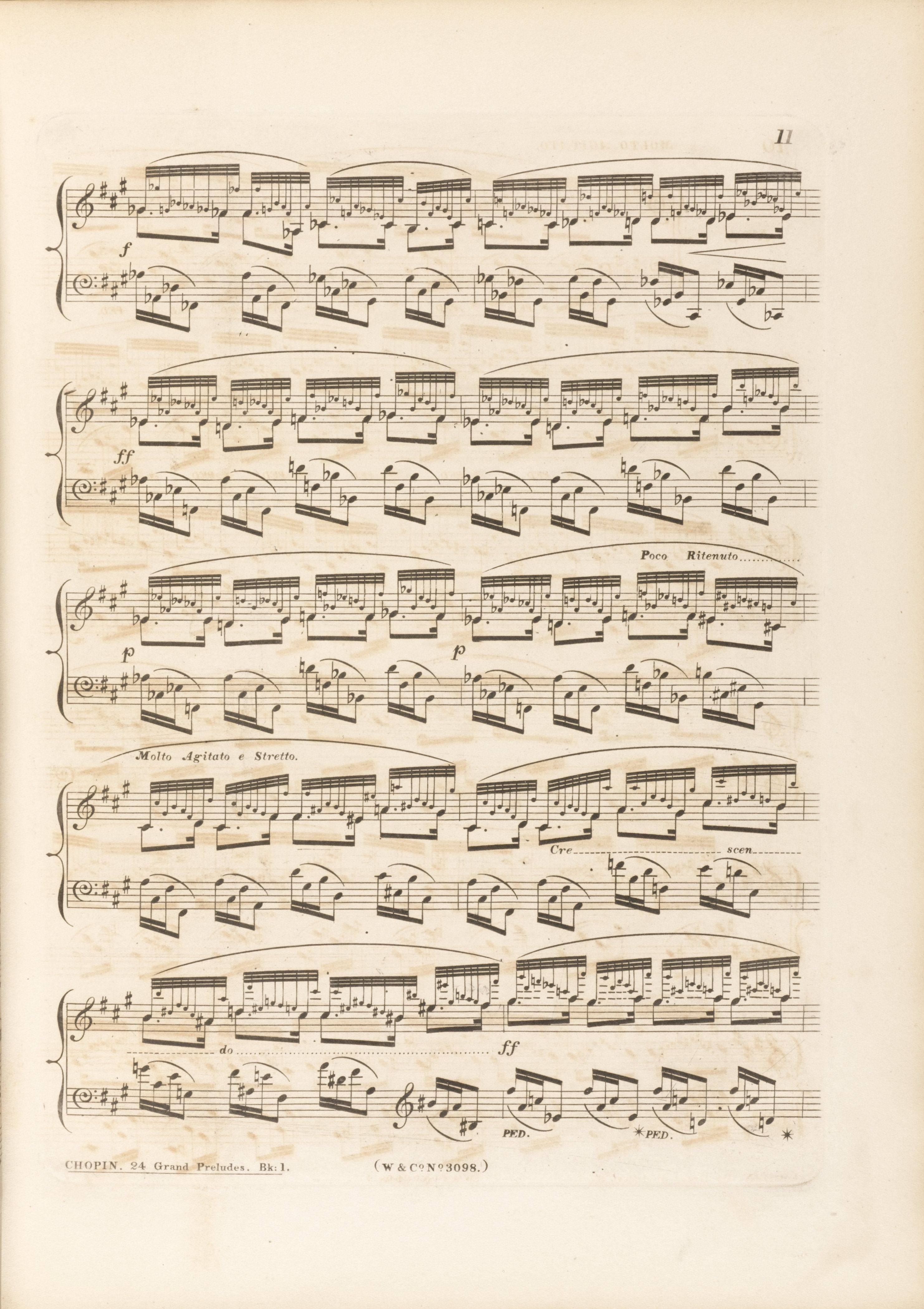Op. 2, Variations in B♭ major
Op. 10, 12 Etudes
Op. 11, Concerto in E minor
Op. 21, Concerto in F minor
Op. 22, Polonaise in E♭ major
Op. 24, 4 Mazurkas
Op. 25, 12 Etudes
Op. 26, 2 Polonaises
Op. 27, 2 Nocturnes
Op. 28, 24 Preludes
Op. 30, 4 Mazurkas
Op. 35, Sonata in B♭ minor
Op. 50, 3 Mazurkas
Op. 63, 3 Mazurkas
Op. 64, 3 Waltzes
(Op. 4), Sonata in C minor




Op. 28 No. 8, Prelude in F♯ minor
The version with f 1, although harmonically possible, is, however, most probably erroneous – in the entire Prelude, in the vast majority of the eight-note figures, the 3rd demisemiquaver is placed a half a tone lower than the 5th one. Therefore, the natural added in FE2 (→EE) is most probably an accurate addition, although Chopin's participation in that intervention is uncertain.
1, although harmonically possible, is, however, most probably erroneous – in the entire Prelude, in the vast majority of the eight-note figures, the 3rd demisemiquaver is placed a half a tone lower than the 5th one. Therefore, the natural added in FE2 (→EE) is most probably an accurate addition, although Chopin's participation in that intervention is uncertain.
Compare the passage in the sources »
category imprint: Interpretations within context; Differences between sources
issues: Omissions to cancel alteration, Errors of A, FE revisions
notation: Pitch

